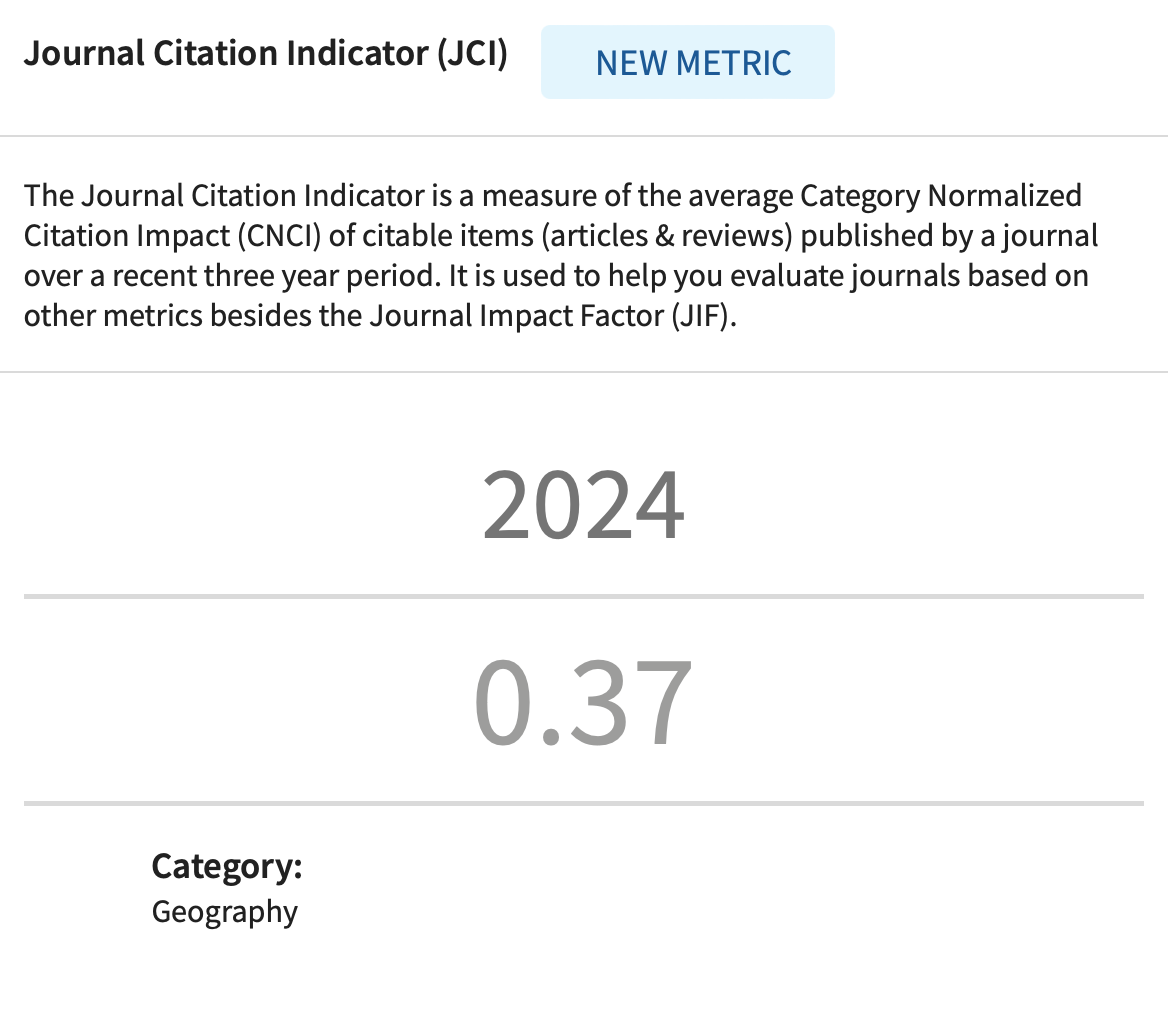THERMAL SPRINGS AND HEALTH TOURISM – THE ANALYSIS OF THE METEOROLOGICAL PARAMETERS
DOI:
https://doi.org/10.2298/IJGI1801133TKeywords:
thermal springs, meteorological parameters, recreation, the Urals, RussiaAbstract
In the modern conditions of tourism development, thermal springs are widely presented as they perform recreational functions. Thermal springs are becoming popular tourist attractions in Russia, while their concentration on Russian territory is rather uneven. In comparison with other countries, where thermal springs play a leading role and represent a dynamically growing recreational and tourist segment, in Russia this segment is still an insignificant part of national tourism. In our research, we studied natural conditions of the territories where thermal springs are located, as well as their quality and convenience for people. We also analyzed the regime of meteorological parameters of the territories of thermal springs located in the Ural Federal District for the period 2015-2017. The analysis of the territory showed that the most comfortable climatic conditions are the characteristic of the southwestern part of the district, which comprises the thermal springs located in the Chelyabinsk region and Sverdlovsk region.
Article metrics
References
Alvarez Cobelas, M., Rojo, C., & Angeler, D. (2005). Mediterranean limnology: current status, gaps and the future. Journal of Limnology, 64(1), 13–29. doi: https://doi.org/10.4081/jlimnol.2005.13
Amin, A., Ahmed, I., Salam, N., Kim, B., Singh, D., Zhi, X., Xiao, M., & Li, W. (2017). Diversity and Distribution of Thermophilic Bacteria in Hot Springs of Pakistan. Microbial Ecology, 74(1), 116–127. doi: https://doi.org/10.1007/s00248-017-0930-1
Bender, T., Balint, P. V., & Balint, G. P. (2002). A brief history of spa therapy. Annals of the Rheumatic Diseases, 61(10), 949–950. doi: http://dx.doi.org/10.1136/ard.61.10.949
Borović, S., & Marković, I. (2015). Utilization and tourism valorisation of geothermal waters in Croatia. Renewable and Sustainable Energy Reviews, 44, 52–63. doi: https://doi.org/10.1016/j.rser.2014.12.022
Chen, K., Liu, H., & Chang, F. (2013). Essential customer service factors and the segmentation of older visitors within wellness tourism based on hot springs hotels. International Journal of Hospitality Management, 35, 122–132. doi: http://dx.doi.org/10.1016/j.ijhm.2013.05.013
Clark-Kennedy, J., & Cohen, M. (2017). Indulgence or therapy? Exploring the characteristics, motivations and experiences of hot springs bathers in Victoria, Australia. Asia Pacific Journal of Tourism Research, 22(5), 501–511. doi: https://doi.org/10.1080/10941665.2016.1276946
Cockerell, N. (1996). Spas and Health Resorts in Europe. Travel and Tourist Analyst, 1, 53–77. Retrieved from https://www.cabdirect.org/cabdirect/abstract/19961808511
Didaskalou, E. A., & Panagiotis, N. (2003). The Role of Climatic and Bioclimatic Conditions in the Development of Health Tourism Product. Anatolia, 14(2), 107–126. doi: https://doi.org/10.1080/13032917.2003.9687020
Didaskalou, E. A., Nastos, P., & Matzarakis, A. (2004). The Development Prospects for Greek Health Tourism and the Role of the Bioclimate Regime in Greece. In: Matzarakis, A., de Freitas, C. & Scott, D. (Eds.), Advances in tourism climatology. Berichte des Meteorologischen Institutes der Universität Freiburg, 12, 149–157. Freiburg: Meteorologischen Institutes der Universität Freiburg.
Fazlzadeh, M., Sadeghi, H., Bagheri, P., Poureshg, Y., & Rostami, R. (2016). Microbial quality and physical–chemical characteristics of thermal springs. Environmental Geochemistry and Health, 38(2), 413–422. doi: https://doi.org/10.1007/s10653-015-9727-7
Goodrich, J. N., & Goodrich, G. E. (1987). Health-care tourism — an exploratory study. Tourism Management, 8(3), 217–222. doi: https://doi.org/10.1016/0261-5177(87)90053-7
Goodrich, J. N. (1993). Socialist Cuba: A Study of Health Tourism. Journal of Travel Research, 32(1), 36-41. doi: https://doi.org/10.1177/004728759303200106
Han, J., Lee, T., & Ryu, K. (2018). The promotion of health tourism products for domestic tourists. International Journal of Tourism Research, 20(2), 137–146. doi: https://doi.org/10.1002/jtr.2161
Heung, V. C. S., & Kucukusta, D. (2013). Wellness Tourism in China: Resources, Development and Marketing. International Journal of Tourism Research, 15(4), 346–359. doi: https://doi.org/10.1002/jtr.1880
Hsieh, L., Lin, L., & Lin, Y. (2008). A service quality measurement architecture for hot spring hotels in Taiwan. Tourism Management, 29(3), 429–438. doi: https://doi.org/10.1016/j.tourman.2007.05.009
Jónás-Berki, M., Csapó, J., Pálfi, A., & Aubert, A. (2015). A Market and Spatial Perspective of Health Tourism Destinations: The Hungarian Experience. International Journal of Tourism Research, 17(6), 602–612. doi: https://doi.org/10.1002/jtr.2027
Lee, T-H. (2010). Assessing visitors' experiences at hot spring recreation areas in Taiwan. International Journal of Tourism Research, 12(2), 193–203. doi: https://doi.org/10.1002/jtr.748
Lee, C. F., & King, B. E. (2008). Using the Delphi method to assess the potential of Taiwan's hot springs tourism sector. International Journal of Tourism Research, 10(4), 341–352. doi: https://doi.org/10.1002/jtr.661
Mueller, H., & Kaufmann, E. L. (2001). Wellness tourism: Market analysis of a special health tourism segment and implications for the hotel industry. Journal of Vacation Marketing, 7(1), 7–15. doi: https://doi.org/10.1177/135676670100700101
Russian Waters. (2017). Retrieved from http://water-rf.ru/Регионы_России/2200/Уральский_федеральный_округ (Accessed on June 2017, in Russian)
Russian Waters. (2017). Retrieved from http://water-rf.ru/Регионы_России/2564/Свердловская_область (Accessed on June 2017, in Russian)
Russian Waters. (2017). Retrieved from http://water-rf.ru/Регионы_России/2563/Курганская_область (Accessed on June 2017, in Russian)
Snyder, J., Crooks, V. A., Johnston, R., & Kingsbury, P. (2011). What do we know about Canadian involvement in medical tourism? A scoping review. Open Medicine, 5(3), 139–148. Retrieved from https://www.ncbi.nlm.nih.gov/pmc/articles/PMC3205829/pdf/OpenMed-05-e139.pdf
The Federal Water Resources Agency. (2017). Retrieved from http://voda.mnr.gov.ru/ (Accessed on June 2017, in Russian)
The Ural Federal District (2017). Retrieved from http://uralfo.gov.ru/ (Accessed on June 2017, in Russian)
Wigtman, D. (1985). The Spa Experience at Radium Hot Springs. Annals of Tourism Research, 12(3), 393–416. doi: https://doi.org/10.1016/0160-7383(85)90006-4
Yessengabylovaa, A., Bekbulatovaa, A., Suraganovaa, S., Bissekova, A., & Zhumanova, B. (2016). Recreational Potential of Kazakhstan and Prospects of Medical Health Tourism in This Country. International Journal of Environmental and Science Education, 11(15), 8447–8469. Retrieved from https://eric.ed.gov/?id=EJ1117740
Downloads
Published
How to Cite
Issue
Section
License
Copyright (c) 2018 Journal of the Geographical Institute “Jovan Cvijić” SASA

This work is licensed under a Creative Commons Attribution-NonCommercial-NoDerivatives 4.0 International License.











